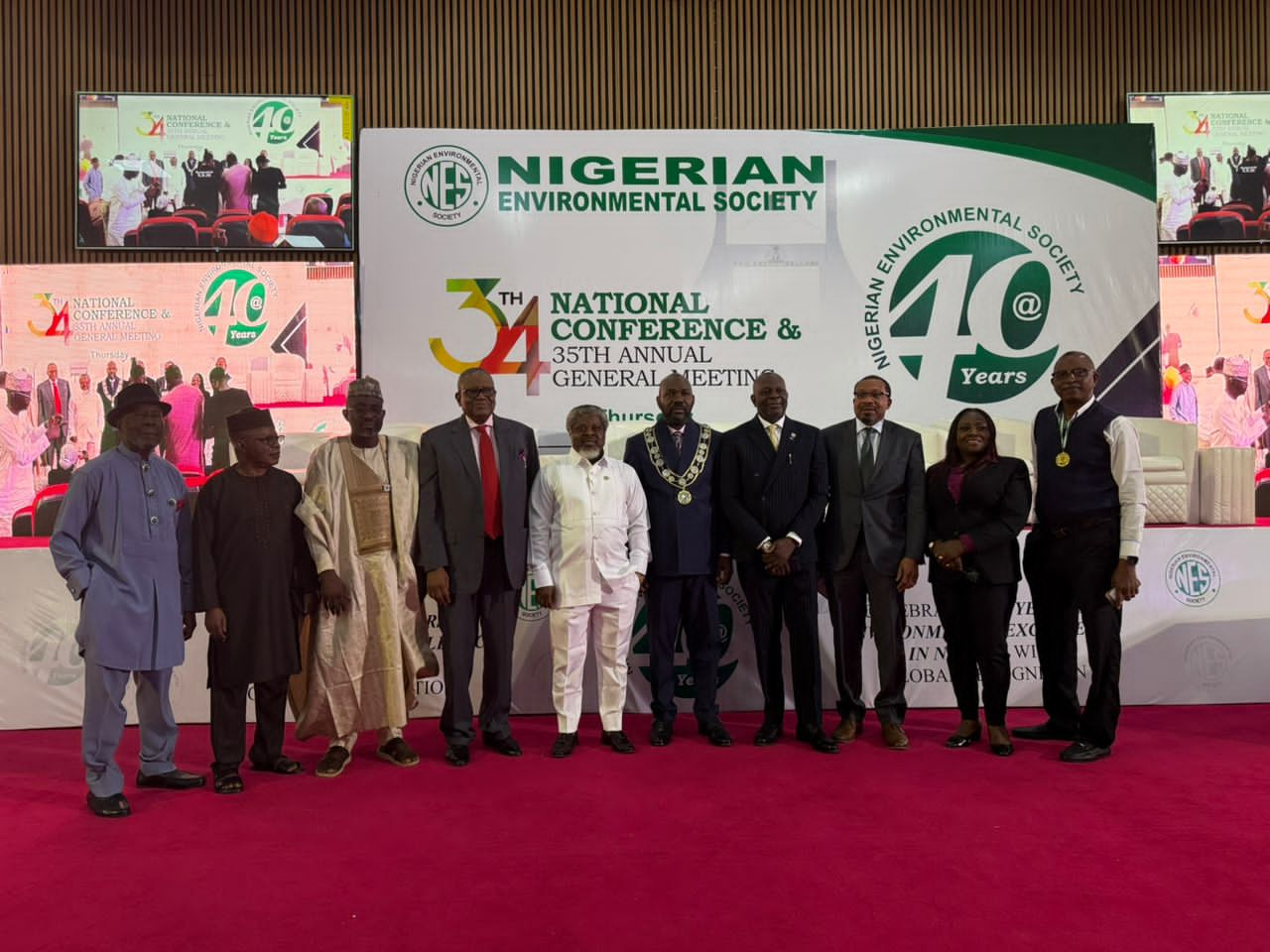The Nation
NES to roll out major environmental roadmap, celebrates 40th anniversary

The Nigerian Environmental Society (NES) says it will soon roll out Nigerian Environmental Outlook, a new policy tool that will track national environmental indicators and guide evidence-based policymaking in the country.
President of NES, Dr. Efegbidiki Okobia, made this known at the society’s National Conference and 35th Annual General Meeting, held on Thursday in Abuja.
He said the roadmap would further advance environmental professionalism, policy development, and sustainable climate action in Nigeria.
“This is the beginning of another 40 years,” he said. “Our roadmap will focus on practical implementation of the Nationally Determined Contributions and ensure climate commitments reach the grassroots,” Okobia said.
Speaking further, Okobia, described the anniversary as a defining moment in NES’s journey.
“We are celebrating our first to 40th anniversary. For the past 40 years, we have made giant strides with different partners across government and the private sector,” he said.
The NES boss, who went down on memory lane, recounted how the society began with ten professionals, mainly from the oil and gas sector, even as he expressed delight that it has now grown to 35 chapters across Nigeria and one in the United Kingdom.
He also highlighted the passage of the Institute of Environmental Practitioners of Nigeria Act in May 2023 as a major breakthrough.
“That Act has given a voice to environmental practice as a foundation in Nigeria,” he said.
He announced that NES had entered a strategic partnership with Sarah’s ISED to enhance capacity building, professional accreditation, and technology exchange for Nigerian practitioners.
Okobia also decried the country’s worsening waste management crisis, describing it as “a national disaster.” He called for legislation to enforce waste segregation at source, stressing that public enlightenment and strong institutional frameworks were key to reversing the trend.
In a keynote address at the event, Sarah Mukherjee, President and Chief Executive of the Institute of Sustainability and Environmental Professionals (ISED), United Kingdom, described the Nigerian Environmental Society as “a beacon of what can be achieved when a group of people come together with a vision and complete the hard work.”
Sarah, who spoke on the theme Nigeria’s Contribution to Global Climate Action, congratulated the society for its 40 years of commitment to environmental advocacy, policy development, and capacity building.
“You should be rightly proud to celebrate 40 years of the society’s dedication to shaping national policies, from the National Policy on the Environment to the Environmental Impact Assessment Act,” she said. “It is a landmark achievement.”
She noted that many NES members have served on inter-ministerial committees, offered technical advice, and represented Nigeria at international environmental negotiations. “The capacity of the Institute for Technology and professional collaboration has contributed significantly to the country’s environmental governance,” she added.
Sarah also drew parallels between Nigeria’s environmental challenges and those faced globally. She cited issues such as waste management, pollution control, and energy efficiency as “shared struggles that demand shared learning and solutions.”
“There is so much that we can learn from each other,” she said, citing examples of flood adaptation work in Copenhagen where overflow areas were transformed into flood-proof cycling lanes. “These are the kinds of innovations that reflect what sustainable urban living can look like.”
On his part, Mr. Hamid Adekunle, one of the society’s founding members, reflected on its humble beginnings and expressed gratitude for its growth.
“There were ten of us who started the Nigerian Environmental Society. I thank Almighty God that I am alive to see 40 years of the seed we planted,” he said.
He praised the current leadership for achieving the long-sought professionalisation of environmental practice and urged the next generation to prioritise research and innovation that address Nigeria’s unique environmental realities.
“I would like to see the society focusing on research and technology that reflect who we are as a country,” he said. “Let us look at the challenges of our regions and craft local solutions, not imported prescriptions.”





















